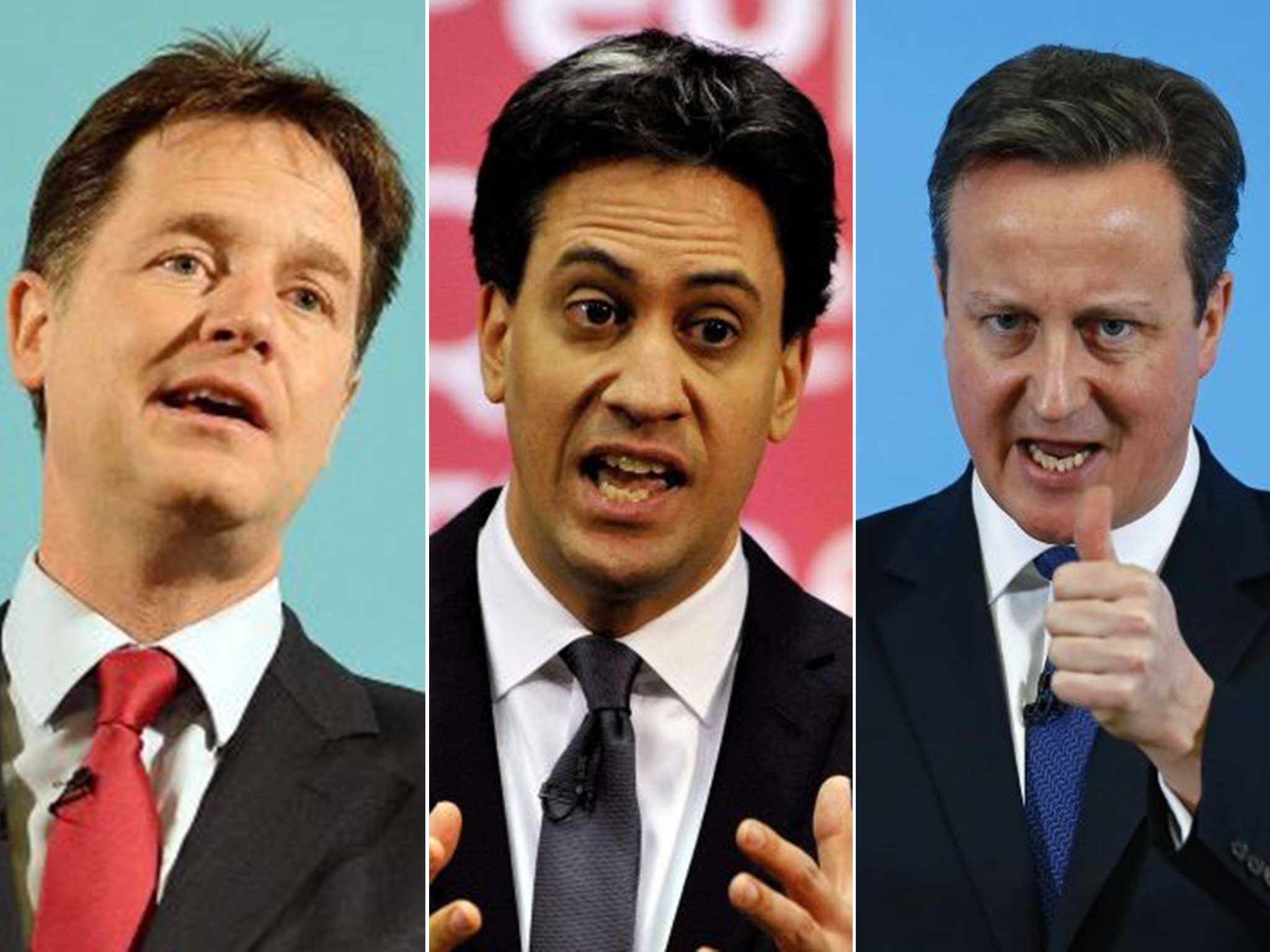UK general election 2015: What do the latest polls show?
Populous, Lord Ashcroft and YouGov all released polling data yesterday - and all had very different predictions of voting intentions

Your support helps us to tell the story
From reproductive rights to climate change to Big Tech, The Independent is on the ground when the story is developing. Whether it's investigating the financials of Elon Musk's pro-Trump PAC or producing our latest documentary, 'The A Word', which shines a light on the American women fighting for reproductive rights, we know how important it is to parse out the facts from the messaging.
At such a critical moment in US history, we need reporters on the ground. Your donation allows us to keep sending journalists to speak to both sides of the story.
The Independent is trusted by Americans across the entire political spectrum. And unlike many other quality news outlets, we choose not to lock Americans out of our reporting and analysis with paywalls. We believe quality journalism should be available to everyone, paid for by those who can afford it.
Your support makes all the difference.The first polls of 2015 have presented very different predictions of voter indications in the coming UK general election.
Lord Ashcroft’s poll, published yesterday, gave the Conservatives a six-point lead on Labour, by 34 per cent to 28 per cent. To put this in perspective this is the largest Tory lead in several years, with the previous two MORI polls placing them only three points ahead.
In comparison, figures also released yesterday by Populus claim to show Labour is leading by five points at 37 per cent to the Conservatives 32 per cent.
Against these two polls, YouGov released figures over the week that placed the two main parties neck-and-neck at 32 per cent apiece.
What do these seemingly hugely different results mean?
Although both polls would appear to indicate changing intentions towards political parties in the run-up to the election, until these results are replicated in a bigger sample it is dangerous to draw too many conclusions from what is essentially a small survey of 1,000 or so people.
The results are more indicative of differing methods used by each pollster. The way in which Populus weights its polls tends to give a bigger share of the vote to lesser parties.
On the other hand, the Ashcroft Poll recently changed its methodology: instead of listing Ukip among “other” political parties as an option, the right-wing party is now listed with ‘traditional’ main parties.
Finally, it is important to remember that all polls carry a three per cent margin for error.
The next UK general election will be held on 7 May.
Join our commenting forum
Join thought-provoking conversations, follow other Independent readers and see their replies
Comments